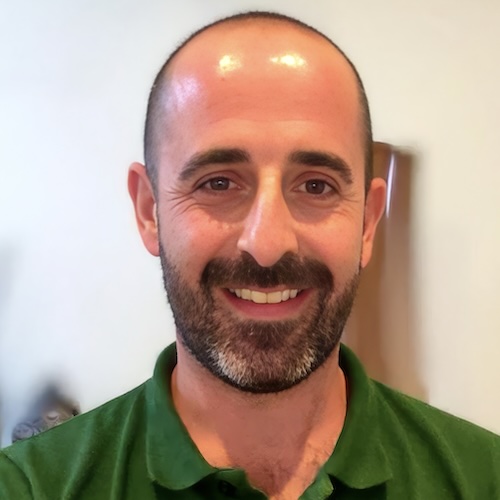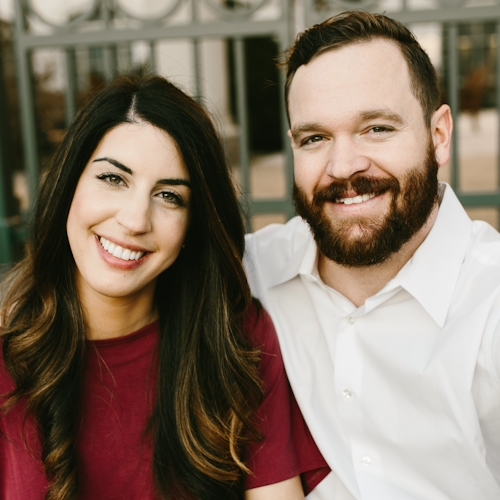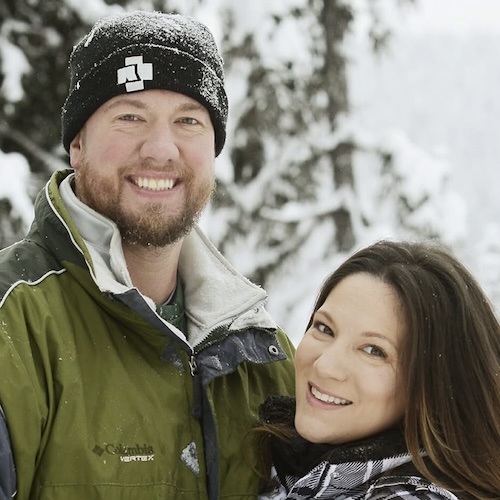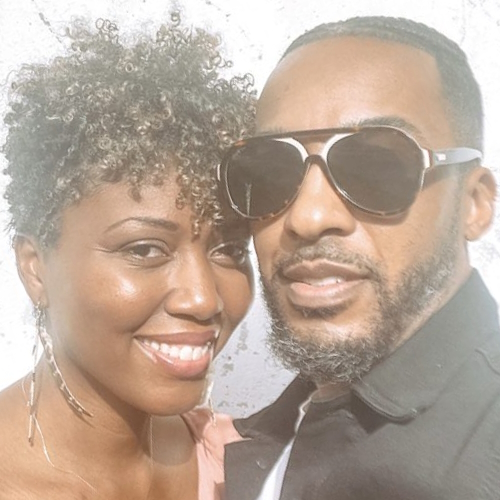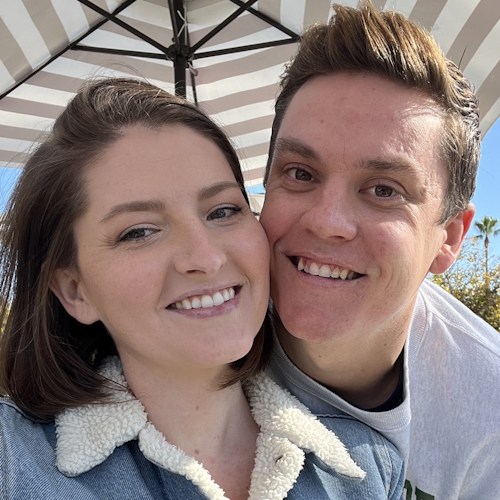Lung Cancer Caregiving: Stephen and Emily Huff’s Candid Conversation
Edited by: Chris Sanchez
When Stephen Huff was diagnosed with stage 4 non-small cell lung cancer, the world he and his wife Emily had envisioned together seemed to fall apart. But Emily stepped into the role of cancer caregiver with grace and determination. They were both overwhelmed and frightened, but Emily’s quiet strength became Stephen’s anchor.
Stephen and Emily navigated the emotional turmoil of his lung cancer diagnosis together. Hand in hand, they took on tough decisions and conversations about life, family, and their future. Emily gently encouraged Stephen to consider fertility treatments despite his initial hesitation because he didn’t see fatherhood in his future and asked her, “What if I die?” Emily’s simple yet profound response, “What if you live?” This helped Stephen shift his mindset from preparing for death to embracing life and their dream of having a family together.
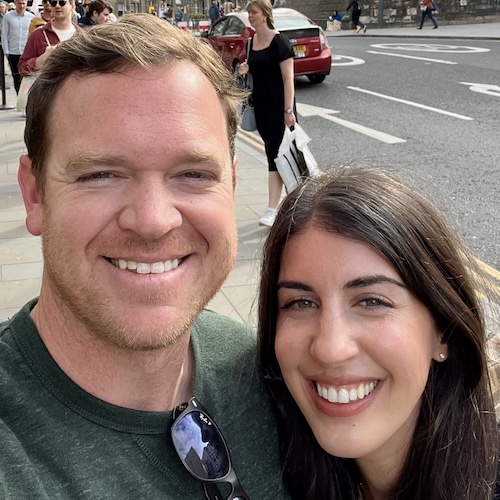
Stephen’s and Emily’s experience wasn’t just about surviving cancer; it was about growing together. Their bond deepened and strengthened through hospital visits, sleepless nights, and emotional hurdles. Today, as proud parents of their kids, Owen and Violet, they celebrate parenthood and cherish the family they once thought was beyond reach.
Stephen calls Emily the glue that holds their family together. Her selflessness, compassion, and belief in better days ahead empowered Stephen to fight, not just for survival, but for a life filled with love and purpose. Watch their video and read their raw, honest conversation for more:
- Discover the simple but powerful question that changed Stephen’s outlook on life.
- Learn how Emily’s role as a cancer caregiver made all the difference.
- Find out how Stephen and Emily defied the odds to start a family.
- See how love and support can be life’s most potent medicine.
- Be inspired by their resilience and hope.
- Name:
- Stephen Huff
- Age at Diagnosis:
- 29
- Diagnosis:
- Lung Cancer
- Staging:
- Stage 4
- Symptoms:
- Lingering shortness of breath
- Persistent cough
- Lump in collarbone
- Treatments:
- Targeted therapy
- Radiation therapy
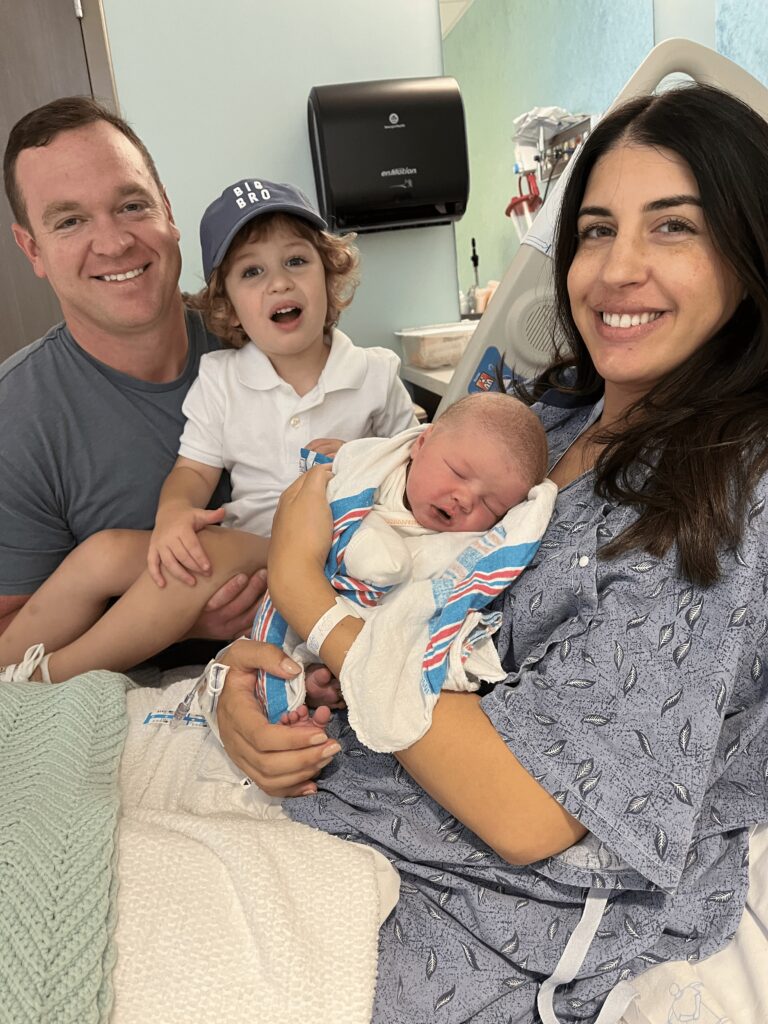

Thank you to Pfizer for supporting our patient education program. The Patient Story retains full editorial control over all content.
This interview has been edited for clarity and length. This is not medical advice. Please consult with your healthcare provider for treatment decisions.
Stephen: “… you’re the biggest reason why we have a family right now… You’re the number one reason why we’re able to hold our kids. They’re miracles.”
About Stephen
Stephen Huff: Hi, my name’s Stephen. I got through stage 4 lung cancer thanks to my doctors, family, and my wife and cancer caregiver, Emily.
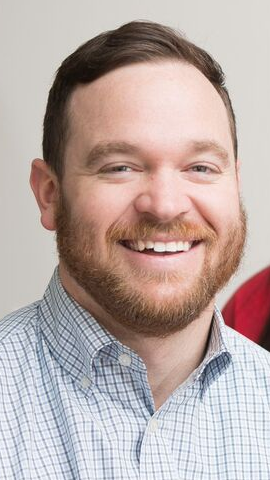
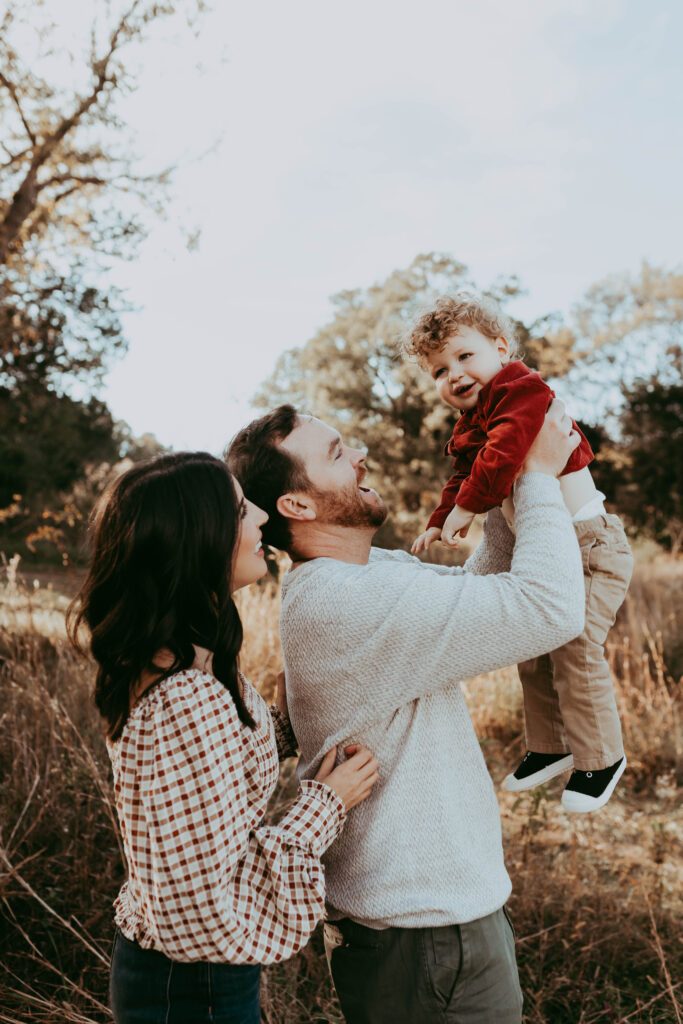
When We Found Out That Stephen Had Cancer
Emily Huff: I remember being in the doctor’s office, waiting for the doctor to come in and praying it wasn’t the worst-case scenario. I remember when the doctor said those words, “stage 4 non-small cell lung cancer” — that was the worst-case scenario. My heart sank.
Stephen: Oddly enough, I remember that my mom was there before on the first appointment, and that was before we had done the biopsy. But we had asked a lot of questions, and we were asking him, “Based on the imaging, what did you think? What was your best guess?” And he said, “It looks like adenocarcinoma.”
And then it seemed like forever. The waiting was so hard. We weren’t sleeping at all, and I wasn’t really eating, and I was so consumed with fear.
After the appointment, we stood in the parking lot, and it was just you, my dad, my mom, and me. I remember saying, “It’s all going to be fine. I’ll be okay. I’ll get through this. Guys, what are we all worried about?” That was really just the denial. It was so surreal.
You think about living a long life. It’s like it’s a forethought for most people. People think, “Oh, yeah, when I’m retired, I’ll do that. Or when I have grandkids, I’ll do that. Or when my kids are old, I’ll do that.” And then in an instant, literally in an instant, you have stage 4 lung cancer, adenocarcinoma, non-small cell, there’s no cure, thinking like, “I’m going to die.” I was in shock and denial.
Emily: “… I remember when the doctor said those words, “stage 4 non-small cell lung cancer” — that was the worst-case scenario. My heart sank.
We Now Have the Family We Always Wanted
Emily: I had always planned to have a family. I always wanted to have a family with you. That felt like it was stripped away when we received that diagnosis. But I’m so grateful that we’re here on the other side now with two beautiful children.
My hope for them, for Owen and Violet, is that they know how loved they are, that love brought them into this world, and it’s the most important thing. Family is the most important thing to me, and I want them to know they’re so loved.
Stephen: Before our diagnosis, I was thinking that we would have at a minimum three, maybe four kids, because I honestly love the idea of family, especially around the holiday times. I love getting together and the feeling of seeing your cousins, your aunts and your uncles, and your brothers and your sisters, the closest people that you have, and sharing all the good times in life with your loved ones.
I envisioned us having four kids and them having husbands and wives and having kids of their own and having 20 people over for Thanksgiving and Christmas. When we got the diagnosis, all that changed immediately, and the immediate thought was I need to get my affairs in line with the fact that I’m going to prepare to die here soon. I didn’t think about it. It’s not that I still wouldn’t want those things. I just didn’t think it was a reality for me.
You probably even remember the night or the day we talked to our doctor, and she went, “You should go to the fertility center and bank sperm in case you want to start a family.” I literally remember thinking, “I’m not going to do that.”
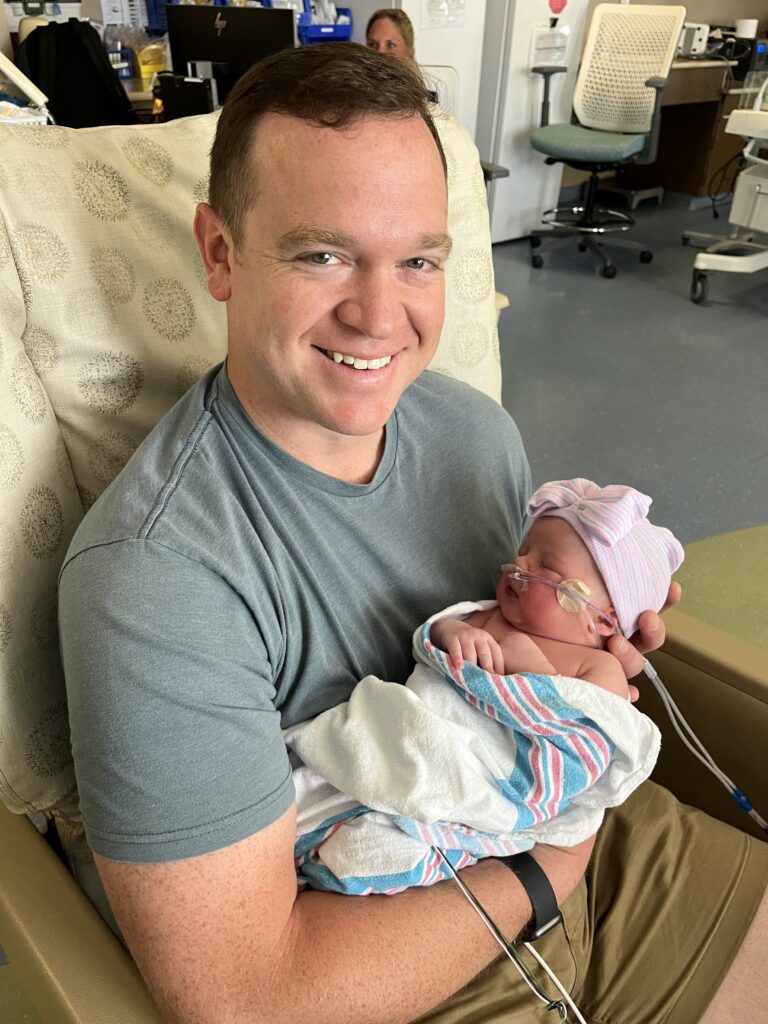
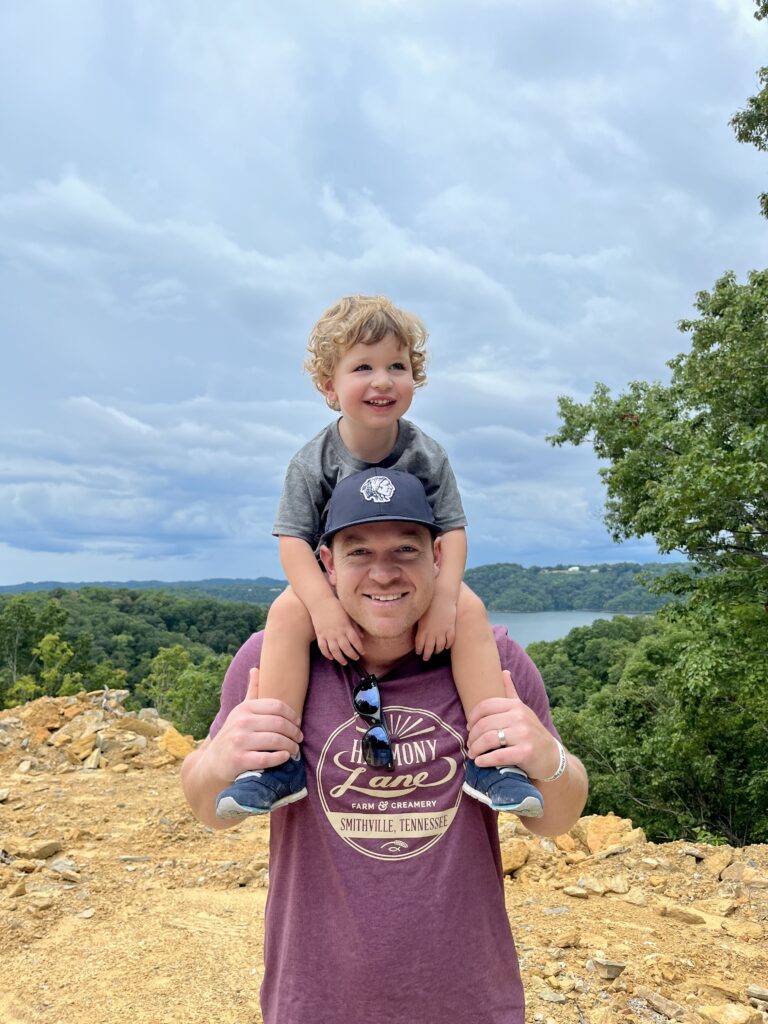
We got home that night, and you never pushed me. You never fought me or got mad at me. You never said, “You have to do this.” We talked, and I remember saying, “What if we have kids and what if I die?” And you were like, “What if you live?” And that changed my perspective on what survivorship looks like. You’re either preparing yourself for death or you’re living life to the fullest.
It was a defining moment for me, and I’m so grateful that you had that feeling. You had that conscious hope that we were going to survive and that we were going to be able to get through this together. I needed that. You would get mad if I said this, but you’re the biggest reason why we have a family right now.
Emily: You think so?
Stephen: I know so. You’re the number one reason why we’re able to hold our kids. They’re miracles.
Emily: All these things had to line up for this to happen for us. We had to hear from our doctor that that was even a possibility. That never would have crossed our minds to seek fertility treatment at the start of this journey. You responding so well to treatment, and our mental state going from, like you said, preparing to die to preparing to live and enjoy our lives and enjoy this time we have together, and that shift. Then it naturally evolved into getting back on track to what we want for our lives.
I’ve been in awe of how strong you are. You’re mentally so strong and able to get up every day and keep pushing through with your life. We’ve started new careers and moved houses. We’ve obviously started a family. We’ve been able to push through. You’ve been so strong through it all, and I look up to that.
Emily: “I always wanted to have a family with you. That felt like it was stripped away when we received that diagnosis. But I’m so grateful that we’re here on the other side now with two beautiful children.”
“You’re the Glue that Holds Us Together”
Stephen: There are so many different traits that I love about you. You’re strong. You’re kind. You’re absolutely the most selfless person that I know. You think about everyone else except yourself. You put everyone else forward. You wake up early to take care of the kids when I can’t. You take care of me when I can’t. You take care of our family. You put us in front of yourself, and you’re the glue that holds us together.
Emily: I would say that it’s you.
Stephen: I don’t think so. When I’m wrestling with Owen at 9 p.m. when he should be going to bed, I’m not the glue. You are truly the most perfect person for me.
I have never said this to your face, but what I would say is that you inspire me to be a better version of myself, to be the best dad and the best husband.
You hold me accountable. You keep me in check. Your selflessness and your ability to always think about what’s best for everyone else and and then your hope, too. I love your hope. You’re the one who keeps me up when I’m down. You have always been able to keep me in check and to keep my eyes on the end game.
I don’t know where I’d be without you today. Probably not alive, but I’m just very glad and grateful to have you in my life.
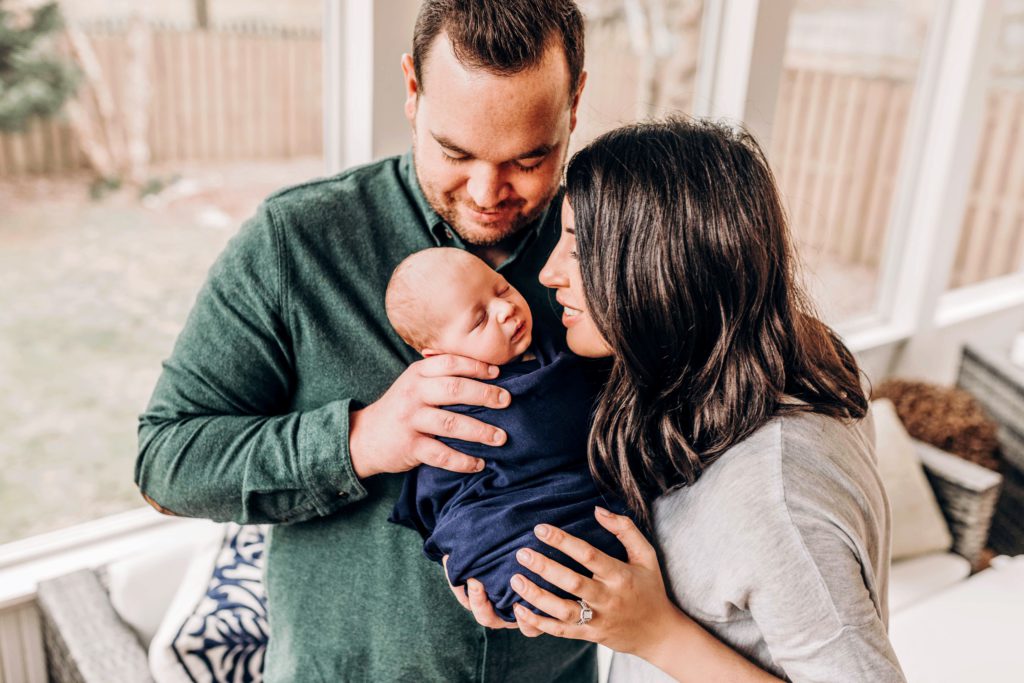
Stephen: “We talked, and I remember saying, “What if we have kids and what if I die?” And you were like, “What if you live?”
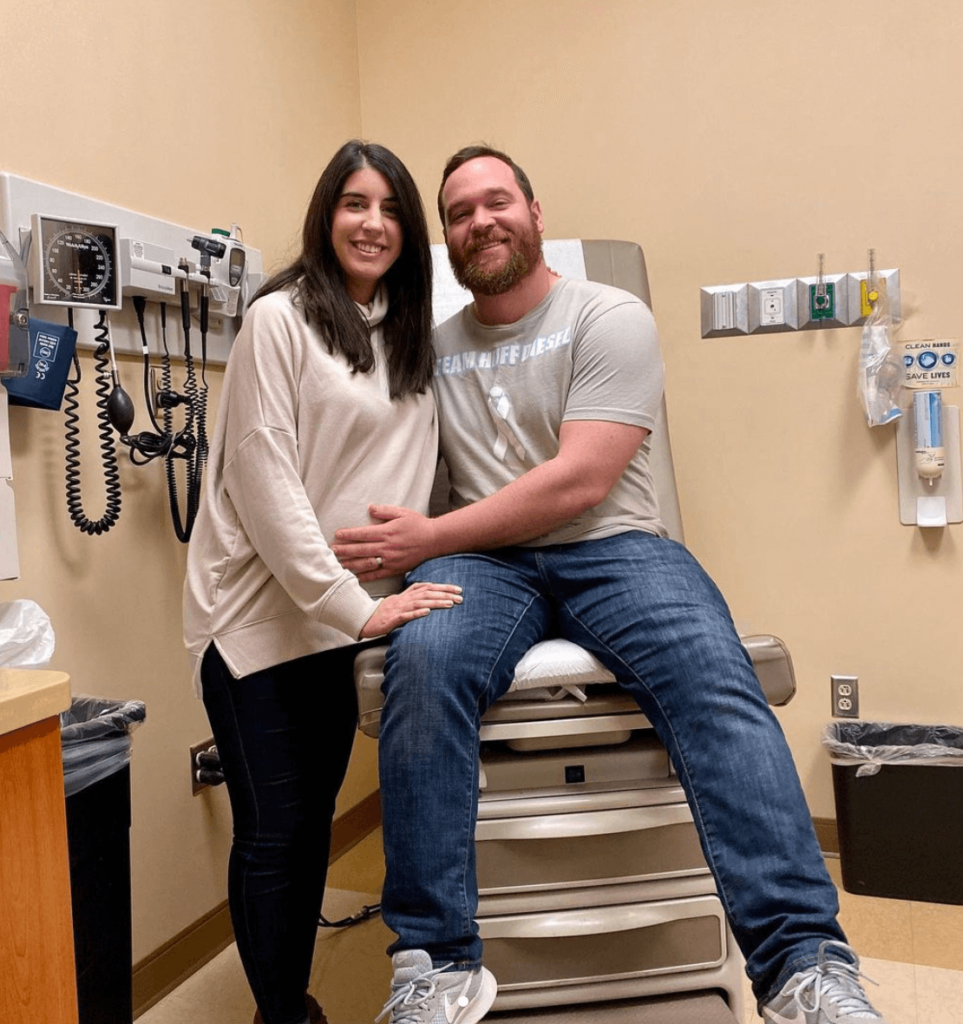

Special thanks again to Pfizer for supporting our patient education program. The Patient Story retains full editorial control over all content.

Inspired by Stephen and Emily's story?
Share your story, too!
Cancer Caregiver Stories
David Garrigues Ronda, Spouse of Laurent Gemenick, Bladder Cancer Patient
“Talk to family, talk to friends. Ask for help. Don't be alone. And above all, don’t miss any doctor's appointments.”
...
Lung Cancer Caregiver Series Episode 2: Stephen and Emily Huff's Candid Conversation
"We talked, and I remember saying, "What if we have kids and what if I die?" And you were like, "What if you live?"
...
Emily Huff, Spouse of Stephen, Lung Cancer Patient
“Emily's the reason why I’m alive today. The treatments have kept the cancer at bay, but she's the one who’s kept me living, breathing, and enjoying life.”
...
Blair D., Spouse of Brain Cancer Patient
“Find other people who are going through the same thing you are. This journey is very isolating and very lonely.”
...
Nat G., Spouse of Bladder Cancer Patient
“You have to become selfless as a caregiver. You have to assure that person that you are there for them.”
...
Kyle Appleford, Spouse of Lung Cancer Patient (Metastatic) with No History of Smoking
“Ask for help. Don’t be too prideful to accept the help. I wouldn’t be here without all the support from family and friends.”
...
